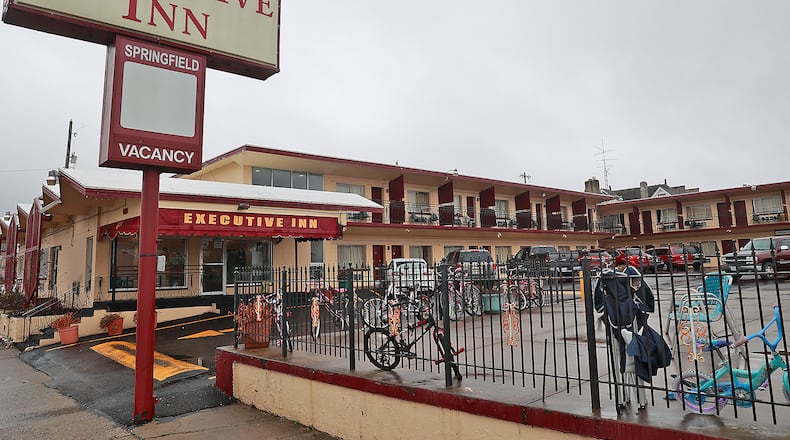County Administrator Jennifer Hutchison said it is costing the county more to place people in temporary housing at a local hotel than it will to fund Homefull’s work.
Department of Job and Family Services Director Ginny Martycz said the contract is for one year so the county can adjust according to what the situation looks like in the future.
“We’ve limited to one year to see what goes forward with the rest of the shelter situation in Clark County, so it’s not a long-term commitment,” Martycz said. “We just want this as a stabilization moment.”
Between Sheltered Inc., OIC of Clark County, the county and now Homefull, several entities are trying to address the crisis in Clark County.
In April, the Springfield City Commission approved an up to $1.34 million agreement with Homefull, authorizing it to oversee the shelter’s operations for one year while it brings the Villager Inn space back online for more permanent housing.
Springfield’s Sheltered Inc. was previously considered by the city as a nonprofit to oversee functions at the location but after shutting down some operations like an emergency shelter and 24-hour service, the city determined it was in no one’s best interest to give it that authority.
In March, Clark County officials said the February termination of a portion of a $700,000 contract — of which about $495,000 was reimbursed — through the Ohio DJFS’ TANF fund with the organization happened after “multiple violations” in regards to the reimbursement of funds were found following a review.
Prevention, Retention and Contingency, or PRC, is a program through Ohio DJFS that provides work support and other services to low-income families. This program is funded through the Temporary Assistance for Needy Families (TANF), a federally funded program.
Elaina Bradley, executive director of Sheltered Inc., said her organization is happy to continue referring people to organizations that can help them as part of the county’s coordinated entry policy.
“We understand that there are much more needed emergency shelter units — not only emergency shelter units, but also, safe, affordable housing within the community,” Bradley said.
Homefull works with unsheltered people to fill needs rooted in housing, health, food access, employment and more. It’s headquartered in Dayton, where it broke ground on a $50 million project last month.
Beau Thompson, an assistant county prosecutor who represents the county commission, said that the contract is sub-grant agreement that requires Homefull to follow set guidelines on what to do with the money but it can follow its own bidding requirements as well.
Martycz said DJFS is unable to provide case management services and Homefull will be able to do so. She said the situation with which the county is currently faced is “unsustainable.”
“We have 34 families in 36 rooms for a total of 111 people; it’s really becoming unsustainable because that’s a lot of extra eligibility work,” Martycz said.
The more organizations that are working to help people experiencing homelessness, the better outcomes the county will experience, Martycz said.
“I think that there is more need in Clark County for more than just one resource or one provider,” Martycz said. “I’ve never swayed on that.”
About the Author

